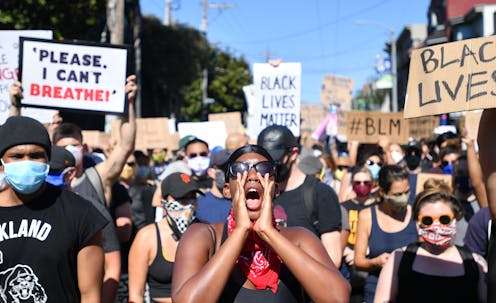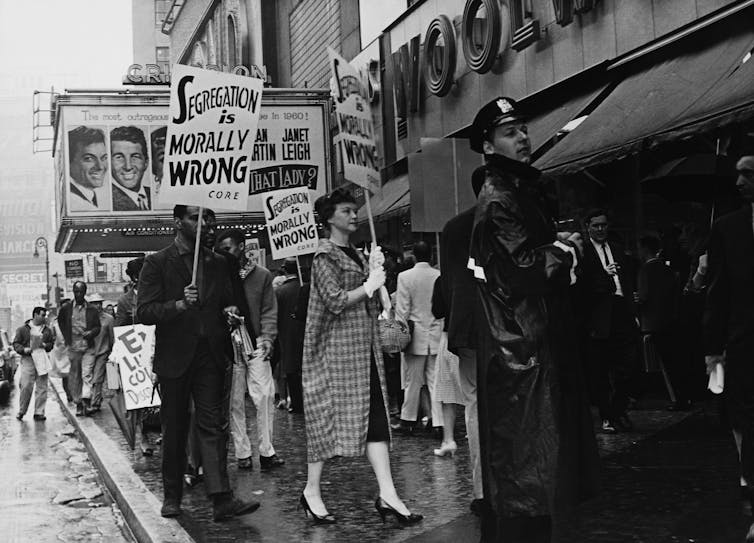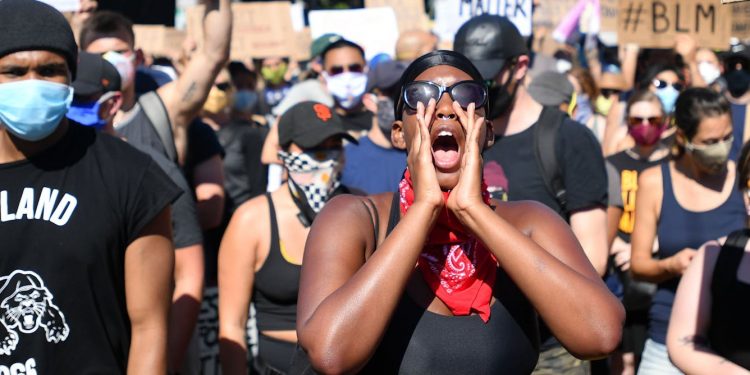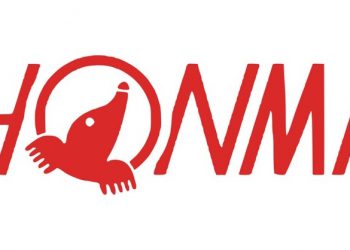
For all the apparent division over Black Lives Matter, the movement may have had a widespread and positive impact on Americans’ support for policies that help the poor.
Since the Black Lives Matter movement launched in 2013, several studies using a range of datasets have all found that Americans’ views of Black people have become significantly more positive. As a sociologist who researches the safety net, I wondered how this might translate to support for policies that support low-income Americans.
That’s because perceptions of Black people have long been one of the best predictors of whether someone favors government aid for low-income people.
If this has held true, more positive views of Black Americans should translate into more support for social welfare programs. Indeed, since 2012, the share of Americans who support higher spending on these programs has grown by 12%.
It still wasn’t clear, though, whether that boost in support was due to some other factor – say, the dramatic economic fallout associated with the COVID-19 pandemic or the success of the government stimulus programs that followed – as opposed to shifts in racial attitudes.
So I decided to explore the extent to which these changes in attitudes about government benefits can be attributed to recent shifts in racial attitudes. I found that nearly all of the increase in support for these safety net programs since 2012 can be explained by changes related to Americans’ racial attitudes.
Who receives these benefits?
When Americans think about welfare beneficiaries, they usually picture Black people.
It’s true that Black Americans are overrepresented among those who receive government assistance. For example, Black people make up just 14% of the U.S. population but 30% of those enrolled in the Temporary Assistance for Needy Families program.
That being said, the majority of recipients of government aid are white.
For decades, however, TV shows, movies and the news media have portrayed Black people as impoverished recipients of government benefits. This has caused many Americans to incorrectly presume that these programs support mostly Black people.
Because so many Americans have traditionally held negative views toward Black people, the mental association between Black people and poverty has undermined support for government programs – and has perhaps even prevented the United States from developing the kind of robust social safety net that is found in many other affluent countries.
Feelings toward Black people have shifted
Since 2012, however, Americans’ racial attitudes have dramatically changed.
In 2012, for example, 49% of Americans responding to the General Social Survey, a long-standing national survey that measures societal change, said Black-white differences in income, housing and jobs were due to a lack of willpower on the part of Black people. By 2022, the most recent year available, this number had fallen to 29%.
There’s been a debate about the exact cause of these dramatic changes. But many researchers credit the Black Lives Matter movement.
Black Lives Matter began in 2013 in response to the acquittal of the man who murdered Trayvon Martin, an unarmed Black teenager. It gained further momentum in 2014 with the police killings of Michael Brown and Eric Garner. In 2020, following the police murder of George Floyd, it became the largest movement in U.S. history by number of protesters.
Past research has linked specific waves of Black Lives Matter protests to increased attention on racial inequality and decreases in racial prejudice.
Breaking down the data
Meanwhile, support for government benefits for low-income people has also grown in recent years.
To figure out whether increased support for Black people was tied into more support for government aid for the poor, I analyzed two national datasets by running a type of statistical analysis called “decomposition.”
A decomposition analysis takes the difference between two groups and breaks it into different parts to explain what’s behind that difference. For example, decomposition analysis has been used to explain the pay gap between men and women. These analyses often find that part of the gender pay gap can be explained by differences in the average number of hours men and women work and by differences in the payoff to a college degree experienced by men and women, among other things. Instead of comparing men and women, I compare Americans in 2012 versus Americans in 2020.
In my analysis, I found that improved attitudes toward Black people between 2012 and 2020, more than any other measure, explained increased support for welfare programs during that same period.
A second factor also helps to explain the increased support for the safety net: Americans are exhibiting greater alignment between their racial and social policy attitudes.
In the past, many Americans expressed support for racial equality in principle but opposed the policies that might actually achieve it. I found something new. In 2020, most Americans didn’t just say that they want racial equality in the abstract. They also expressed support for the programs they believed will bring it about.

Keystone-France/Gamma-Keystone via Getty Images
GOP voters have changed, too
These progressive attitude shifts can even be found among Republican – albeit to a lesser extent. Republican politicians once appealed to voters by disparaging welfare recipients and Black people. In light of these attitude shifts, that approach no longer appears to be a recipe for political success in America.
Instead, Republicans have made opposition to immigration central to their campaigns. Immigration is an issue where Republicans perform well with voters, and this strategy has paid off at the voting booth.
But governing requires attention to more than just the issues that poll well.
Particularly when it comes to decisions about the safety net, Republicans find themselves in an awkward position. As recent budget debates in the House have made clear, the goal of dramatically cutting government spending conflicts with promises to protect the social programs Republican voters increasingly support.
The safety net may very well become a major liability for the Republican Party. To the extent that the GOP continues to back spending cuts for programs that help millions of low-income people, it will be out of step with many of its voters. But if it follows the lead of right-wing parties in Europe and supports the safety net, it will be at odds with many of its donors.
![]()
Karyn Vilbig received funding for this work from the American Sociological Association's Doctoral Dissertation Research Improvement Grant (ASA DDRIG).













